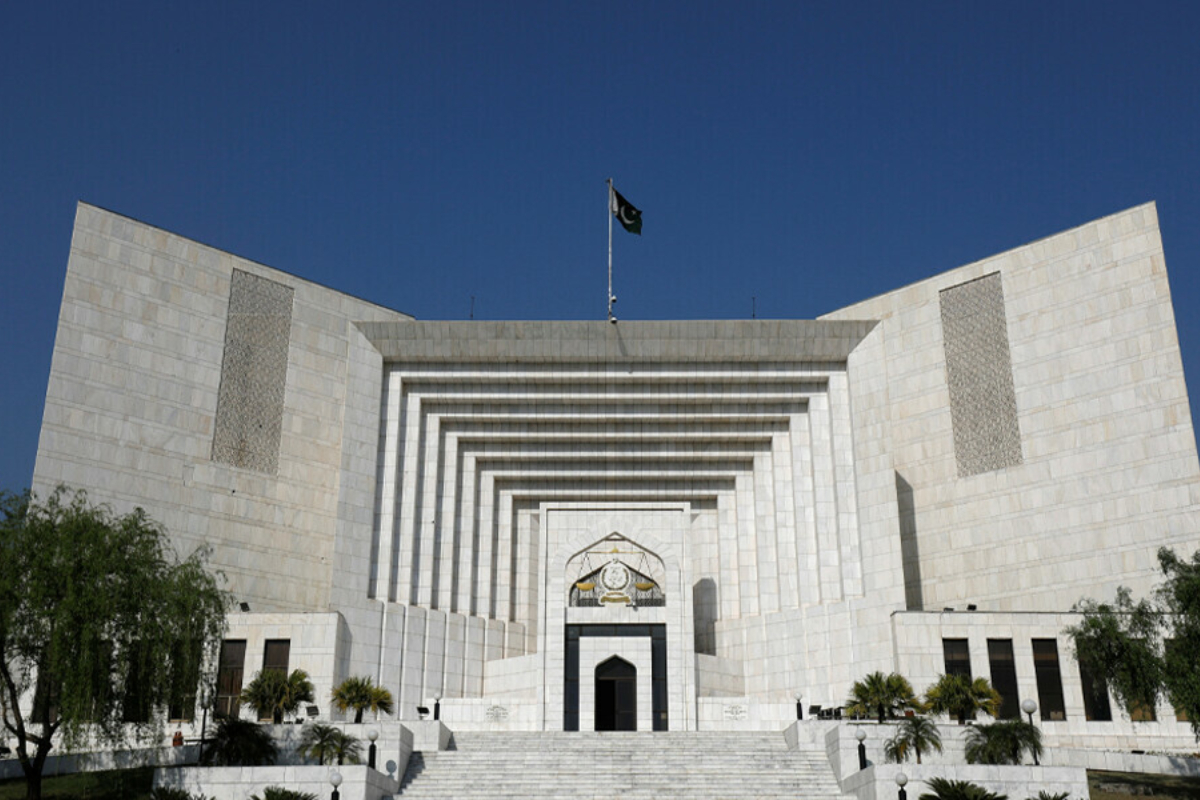ISLAMABAD: In a unanimous verdict, a five-member bench of the Supreme Court on Monday declared the trials of civilians in military courts null and void.
The court admitted the petitions challenging the trial of civilians involved in the May 9 riots triggered by the arrest of Pakistan Tehreek-e-Insaf (PTI) chief Imran Khan.
The five-member apex court bench — headed by Justice Ijaz Ul Ahsan, and comprising Justice Munib Akhtar, Justice Yahya Afridi, Justice Sayyed Mazahar Ali Akbar Naqvi, and Justice Ayesha Malik — heard the petitions.
The court ordered that 102 accused arrested under the Army Act be tried in the criminal court and ruled that the trial of any civilian if held in military court has been declared null and void.
The top court said the verdict is applicable to all those accused arrested in connection with the riots of May 9 and 10.
The bench concluded that Section 2(D)(1) was in contradiction with the Constitution. However, the verdict was 4-1 (with Justice Yahya Afridi reserving his decision) on this point.
The apex court had reserved the verdict earlier after Attorney General of Pakistan (AGP) Mansoor Usman Awan completed his arguments around the domain of the military courts to try civilians under the Army Act.
At the outset of the hearing today, the petitioner’s lawyer Salman Akram Raja told the bench that trials of civilians has already commenced before the top court’s verdict.
Justice Ahsan said the method of conducting proceedings of the case would be settled after Attorney General of Pakistan (AGP) Mansoor Usman Awan completed his arguments.
The AGP said he would explain to the court why a constitutional amendment was necessary to form military courts in 2015 to try the terrorists.
Responding to Justice Ahsan’s query, AGP Awan said the accused who were tried in military courts were local as well as foreign nationals.
He said the accused would be tried under Section 2 (1) (D) of the Official Secrets Act and a trial under the Army Act would fulfill all the requirements of a criminal case. He said the trial of the May 9 accused will be held in line with the procedure of a criminal court.
The AGP said the 21st Amendment was passed because the terrorists did not fall in the ambit of the Army Act.
Justice Ahsan asked why the amendment was necessary for civilians. AGP Awan replied that the 21st Amendment included a provision to try accused involved in attacking restricted areas. “How do civilians come under the ambit of the Army Act?” Justice Ahsan asked the AGP.
Justice Malik observed that the Army Act was enacted to establish discipline in the forces. The AGP told the bench that court-martial is not an established court under Article 175 of the Constitution.


